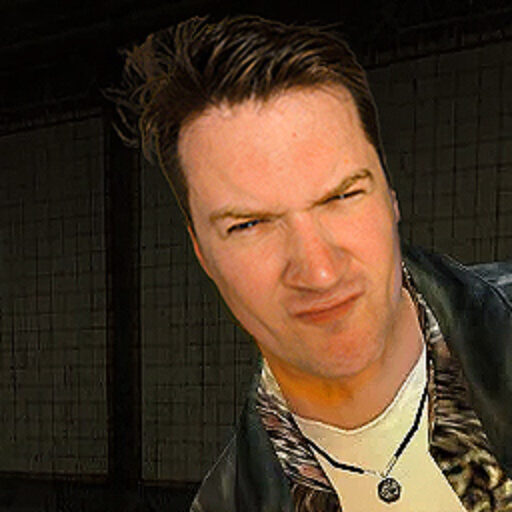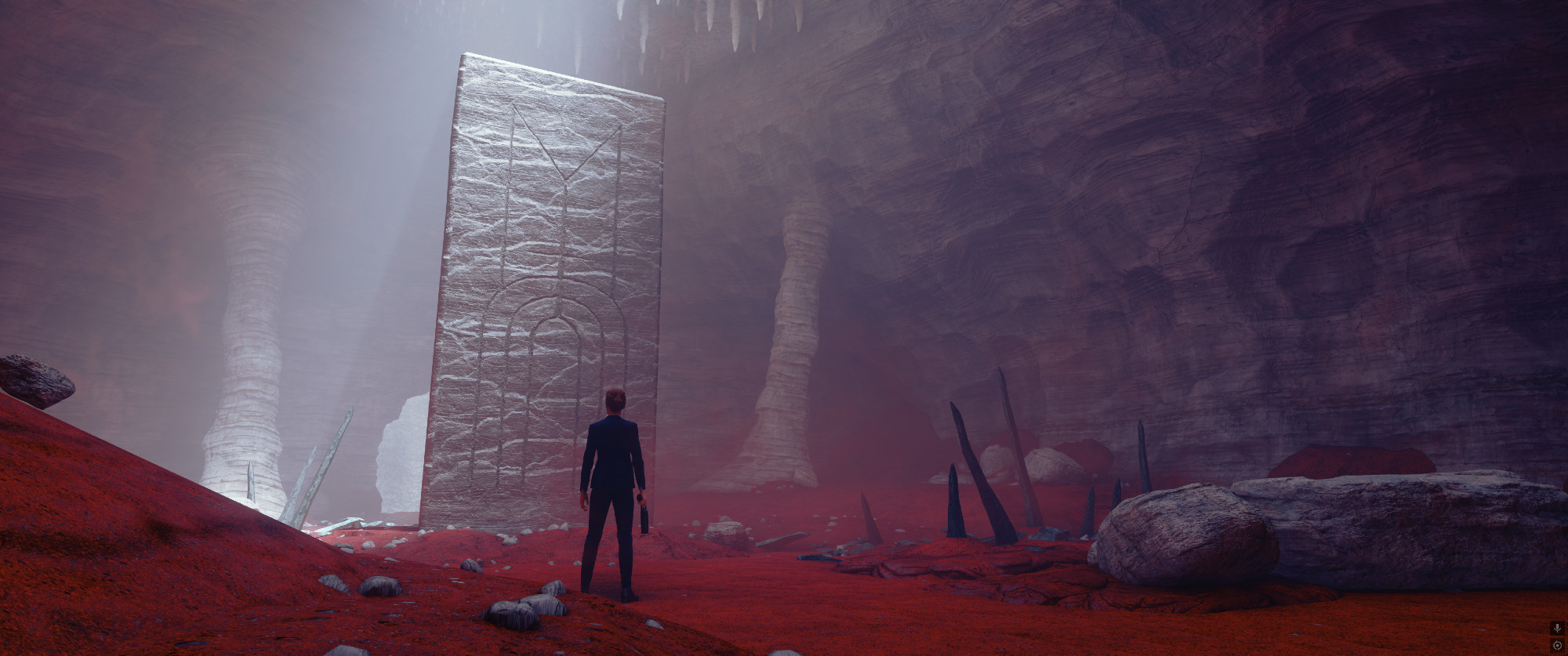I’ve written before about – even though I’m a huge longtime Remedy enjoyer – not liking Control very much, but wanting to like it. Well, good news! After years of trying to like it, I finally like it. Here I will share with you the secrets, for there are several, to Liking Control If You Don’t Like It Now, which I think is only fair after giving it a bit of a hard time in that other post.
This isn’t really a reversal of my previous feelings about Control, but like Half-Life 2, I think it’s flawed in really specific loadbearing ways that you can negate if you approach it in a certain way. The combat is broken, which you can fix with One Weird Trick, but the most important thing, I guess, was managing my narrative expectations.
play the Foundation DLC
Even working around a lot of issues and suspending a lot of disbelief, there are things about this story that don’t land for me: mostly Jesse, her motivations, and her incuriousness about the world. The story felt, to me, like it had no idea where it was going – and I don’t mind if that’s true, I just don’t want to feel it. Foundation was the big missing piece – obvious questions are finally asked, mysteries are acknowledged, and although the situation doesn’t change much, the confusion of it all finally feels deliberate. If this was in from the start, I would have probably had more trust in the narrative.
don’t expect any particular narrative thread to go anywhere
because that way you can be pleasantly surprised when they do.
I struggled with how many dozens of loose threads this game throws around and leaves dangling, particularly where it felt like there was never intent to make much of them. I’m not somebody who needs everything to earn its place or get resolved or whatever, but a lot of the worldbuilding documents come off thoughtless, like: “trust me, we’re zany”, and never connect to anything else. There is a cohesion to it which escaped me the first time, but accessing it needs a lot of patience, and, I think, a certain amount of luck – you can encounter these documents in any order, but they rely on each other for tone and context.
It’s a good linear story jammed into a nonlinear game, and really nothing about that nonlinearity works for me. It makes me think of how Alan Wake 1 was meant to be nonlinear at one time, and has brief open-world sections where they flex the tech, but they couldn’t make it work narratively. It turns out they still couldn’t as of 2019, but I don’t know why they want to. Linear games are great! I hope Control 2 is one.
listen to every Hotline call the second it comes up
Sometimes there’s a full-screen overlay of a snippet of someone talking for a few seconds, and then nothing. First time through, I didn’t realise these unlock audio logs that comprise most of the game’s narrative. You have to pause and go to a “Collectibles” menu to hear them. Every other game, “Collectibles” means meaningless junk, so I never look in there. Played the whole game and missed out on the story. Turns out it’s better with the story in it.
I’m sure I’m in the minority in missing it entirely, but this is so not my bad. It’s an audio-log-based story with very little other dialogue, it should play the whole log when you find it, while you run around. Instead you watch a looping gif for several minutes. I feel the same way about Alan Wake 1 and 2’s manuscript pages – I really want to hear these, but I don’t want to sit and do nothing while it happens. Let me play!
These are handplaced logs, so it’s not like they have to contend with any timing issues, but I wonder if they just didn’t find that out soon enough. I could imagine a system like this might have come out of avoiding conflict with other systems or designs, but then those didn’t come together and left this one a bit orphaned.
turn off the health bars and level numbers on the enemies,
which ruin everything. Someone must have known that, I guess, or there wouldn’t be an option to disable it.
The combat is broken in this game, not in the usual way people mean, but in terms of its second-to-second dramatic tension. This sounds like a gamer-ass nitpick, but actually it’s an extremely Game Developer one. I’d be upset, really distraught, if I worked on Control’s combat, which turns out to be amazing, and then someone put these health bars and level numbers on it, one person’s work stomping another’s into dust (and I can’t imagine the same people worked on these things).
The numbers and progress bars turn a tense, exciting, immersive combat experience into something frustrating and draining and finnicky, and makes you play the hud even more than a minimap does, and has you picking cheesy strategies instead of cooperating with the drama. A guy taking a desk to the face, so you think he’s dead, but then he gets up, is completely different to knowing right away that he still has a little health left. A guy being hard to kill should be discovered by you trying to kill him, not by a number on him.
I don’t have particularly strong negative feelings about health bars and level numbers in general, and I know a lot of folks do. I didn’t mind them in Wolfenstein Youngblood, where they were popularly hated; it felt important to co-op strategy in that context. In co-op, you lose something taken for granted in singleplayer: complete knowledge of how much damage has been dealt to a guy. Tracking it this way helps you know how best to help your teammate out. There’s no such upside in Control, it worsens the experience and that’s all it does.
It’s whole ‘nother post, probably, but “immersive” games undercutting themselves this way bothers me a lot – showing the numbers, exposing the artifice and simplicity of whatever’s going on, breaking the illusion. If I jump a lot in Skyrim and my Acrobatics Increases, or whatever, and there’s no HUD, I can imagine something more interesting is happening, and I’ll have a better time than if you tell me you plus-plussed an int. Black & White blew everyone away with its AI, and in 2 everyone thought it was dumb, because they told you what it was thinking, killing its ambiguities.
Anyway,
do every sidequest the second it becomes available
You can walk right past ’em and forget about ’em, but they’re often critical to the main quest! You can end up stuck in a boss fight that’s completely unwinnable because you’re missing an ability, completely unawares. Any other game would make the important unlocks part of the main quest, or not allow you to enter a fight you aren’t equipped for, or at least let you know you’re missing something. This is King’s Quest 6 shit (in that game, you can get to the end and the game is unwinnable if you didn’t talk to a clown in a bookshop 20 hours ago).
I have a hard time imagining how this could have happened. It does seem like the game aspired to be more of a “metroidvania” than it succeeded in being (which has happened to me too) but this is such a biggie to let slide. I guess some AAA inflexibility nonsense? Politics of some sort? Who knows. Anyway, I ran into this a lot on my first run and it really soured the game for me.
do not engage with any of the upgrade systems,
except at the level of “hold F 200 times to destroy unwanted items when your inventory fills up” and “put something high level in each slot”. It’s not even worth reading what the effect is, far less comparing things or making any choices. Another one that I’d like to have been a fly on the wall at Remedy about, but it probably would have just depressed me.
just, like, relax, man
I had an unlucky time with Control initially, hitting every possible frustration point, and I do think it’s a failing of the game that there are so many; they’re mostly simple fixes. I like a game to take me on a journey, I don’t like having to curate my own experience to this degree in a game that’s basically linear and non-expressive. But avoiding these issues and relaxing into it, it’s suddenly very good. I’m excited for 2 now.
But I also don’t really know what to expect, either from that or the upcoming Max Payne remake, because I find Remedy to be a slightly mixed bag vibeswise these days. Some of the choices in Control, and to a lesser extent Alan Wake 2, feel sort of… contaminated, in a small way, by a type of design thinking that’s not of a piece with the rest of it. Not to the degree of Assassin’s Creed, but it feels like strange concessions are being made to strange influences in strange places. Why are there randomly-generated timed daily slop quests in Control? Why is that upgrade system in there? Why does FBC Firebreak exist? I have a hard time thinking anyone’s heart is in these things. But Lake House was amazing, so maybe there’s nothing to worry about.



Leave a Reply
You must be logged in to post a comment.